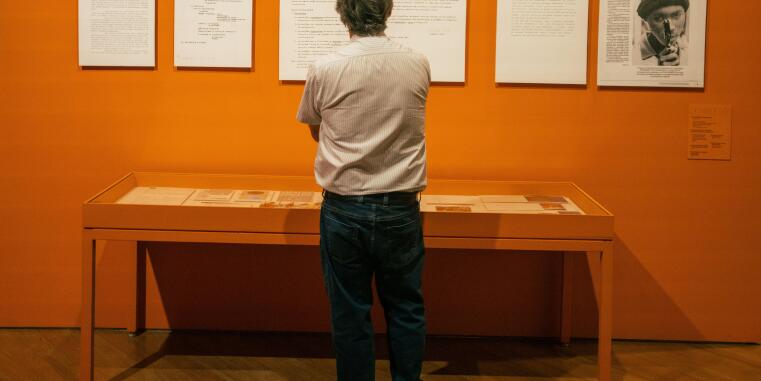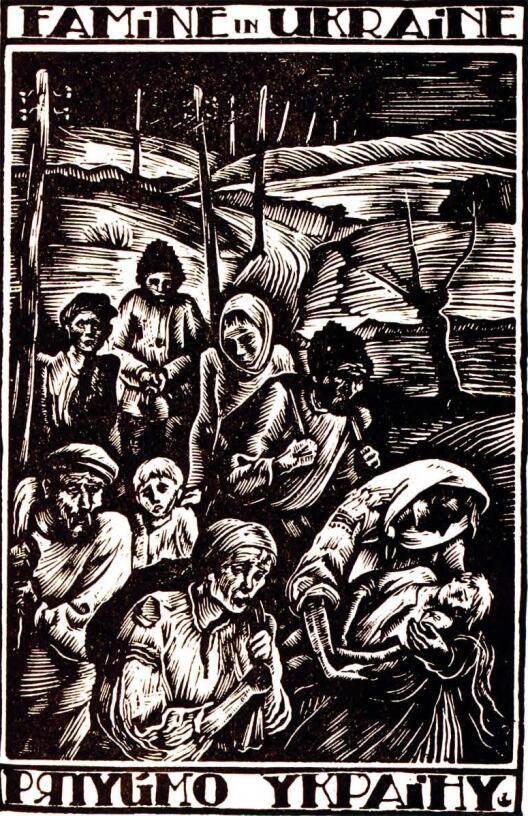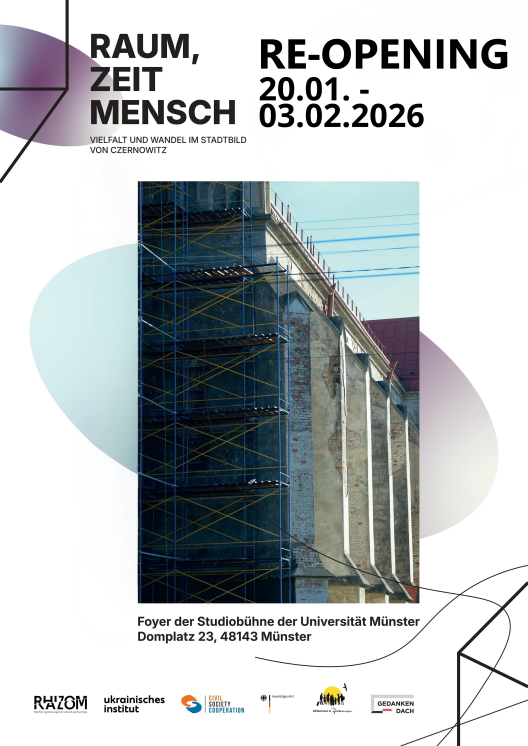

Exhibition: ‘Why are you still alive? The Holodomor of 1932/33: Stalin plunges Ukraine into the greatest famine in European history’

The Holodomor of 1932/33 ranks among the greatest man-made disasters in 20th-century Europe. Millions of Ukrainians died as a result of Stalinist forced collectivisation, massive grain confiscations and the deliberate isolation of entire regions. The famine was concealed for decades and its memory suppressed. It was only after the collapse of the Soviet Union that the full extent of this crime could be historically documented.
Against this backdrop, the exhibition "Why are you still alive? The Holodomor 1932/33: Stalin plunges Ukraine into the greatest famine in European history" presents the political background, course and aftermath of the Holodomor. It also focuses on the culture of remembrance and the artistic processing of this trauma. The concept was developed by the Ukrainian Institute of National Remembrance (UINP) and the Holodomor Museum in Kiev.
The exhibition opening will take place on 21 April 2026 from 6 to 8 p.m. in Lecture Hall F2 (Fürstenberghaus, Domplatz 20-22). André Sahorn, son of an eyewitness, will be the guest speaker. He will describe his family's experiences during the famine, offering a personal perspective on this historical crime.
The exhibition will be on display from 21 April to 12 May 2026 in the foyer of the Fürstenberghaus.
Re-Opening: ‘Space, Time, People. Diversity and Change in the Cityscape of Chernivtsi’

Bukovina is a historical region characterised by a multicultural and multireligious life, marked in part by peaceful coexistence, but also by confrontation, which sometimes escalated into extreme violence. Northern Bukovina, which belongs to Ukraine as part of the Chernivtsi Oblast, remains a heterogeneous region with several minorities to this day. The travelling exhibition reflects how diversity and change are evident in the cityscape of Czernowitz / Chernivtsi. It also documents current developments, reactions to and consequences of Russia's war of aggression, as reflected in the changed population structure resulting from the influx of many internally displaced persons.
The exhibition, which was created in collaboration with the NGO ‘Ukrainian-German Cultural Society Chernivtsi’ at the Gedankendach Centre and the association ‘Begegnung in Falkensee e.V.’ with the support of the RAZOM/RHIZOM programme as part of the ‘Cooperation with Civil Society’ initiative organised by the German Foreign Office, was first shown in Münster following the interdisciplinary summer school on ‘Cultures of Remembrance using the example of Bukovina’ organised by the German Academic Exchange Service (DAAD) at the Universities of Münster and Chernivtsi and can now be seen again during the semester in the foyer of the Studiobühne.
‘Space, Time, People. Diversity and Change in the Cityscape of Chernivtsi’

Bukovina is a historical region characterised by a multicultural and multireligious life, marked in part by peaceful coexistence, but also by confrontation, which sometimes escalated into extreme violence. Northern Bukovina, which belongs to Ukraine as part of the Chernivtsi Oblast, remains a heterogeneous region with several minorities to this day. A summer school organised by the Universities of Münster and Chernivtsi and funded by the German Academic Exchange Service (DAAD) took place from 7 to 16 September 2025. It examined how these forms of coexistence have been remembered in the past and present from the perspective of various disciplines in the humanities and social sciences. Current developments, reactions to and consequences of Russia's war of aggression were also taken into account, as reflected in Chernivtsi, for example, in the cityscape, in the removal and re-erection of monuments, and in the changed population structure resulting from the influx of many internally displaced persons. The travelling exhibition "Space, Time, People. Diversity and Change in the Cityscape of Chernivtsi‘ documents this change. The exhibition, organised in cooperation with the NGO ’Ukrainian-German Cultural Society Chernivtsi" at the Gedankendach Centre and the association ‘Begegnung in Falkensee e.V.’ with the support of the RAZOM/RHIZOM programme as part of the initiative ‘Cooperation with Civil Society’ organised by the Federal Foreign Office, can be seen in the foyer of the Studiobühne until 24 September (Wednesday).
Exhibition: ‘From afar to my Ukraine’. Letters of the forced labourer Hanna Pastuch from Gelsenkirchen 1942-43 , 21.11.-14.12.24

In cooperation with the Ukrainian NGO Після тиші / After Silence, the Department of Eastern European History and Ukrainian Studies in Münster (USiM) is showing the exhibition ‘From afar to my Ukraine’, letters of the forced labourer Hanna Pastuch from Gelsenkirchen 1942-43 on the history of Nazi forced labour using the example of the fate and first-person documents of Hanna Pastuch, a Ukrainian ‘Eastern worker’ in Gelsenkirchen.
With this exhibition, which was conceived by After Silence in Gelsenkirchen and brought to Münster by Dr Kateryna Kobchenko, a postdoctoral researcher in our department, we would like to commemorate the fate of Ukrainian forced labourers in Germany. Far too rarely are these fates recognised from the subject's perspective, which is often not least due to the language barrier. This exhibition has now been conceived in German and Ukrainian.
We cordially invite you to the opening ceremony on 21 November 2024 at 6 pm in the Studiobühne of the university (Domplatz 23)! The one-and-a-half-hour event will be led by Dr Kateryna Kobchenko and Daria Reznyk, M.A., part of Після тиші / After Silence and associated researcher at the Leibniz Institute for the History and Culture of Eastern Europe (GWZO) in Leipzig.
The exhibition will also be on display in the foyer of the Philosophikum (Domplatz 23) from 22 November to 14 December.
The creation of the exhibition and its transport to Münster was financed by Після тиші / After Silence with the support of the Rosa-Luxemburg-Stiftung.

